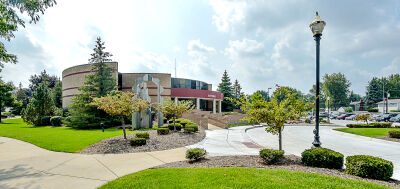STERLING HEIGHTS — If Sterling Heights’ 2024-25 budget maps out how the city plans to open its purse strings, city officials recently gave the public a look inside the bag during April budget meetings and a final May presentation.
During a May 7 Sterling Heights City Council meeting, Finance and Budget Director Jennifer Varney gave an overview of the new budget, which the council then adopted.
Varney said the total budget tops out at $252.2 million, with $125.7 million making up the general fund. The total budget is smaller than the prior year’s by about $34.5 million, or 12%, she said. She attributed the change in large part due to the ending of American Rescue Plan Act funding and changes in road funding “due to timing and the completion of Mound Road in the current year.”
However, the general fund increased by around $5.6 million, or 4.7%. Varney said the new general fund budget spends more on staffing — such as wages, health insurance costs, and police and fire pension contributions.
Varney said the general fund is expected to produce almost $89,000 of additional fund balance, adding that it should bring the city’s total reserves to around $37 million, or around 30% of general fund spending.
The city’s total millage is set to increase from around 16.38 mills to 16.58 mills, and an average home with a market value of $284,000 and a taxable value of $98,340 would pay $1,630 in city taxes per year, Varney said.
Varney attributed the budget’s “small tax increase” mainly to refuse services. She said the previous eight-year fixed refuse contract has expired, and the new contract means around a $30-$35 yearly increased cost for the average home.
When commenting on refuse costs, City Manager Mark Vanderpool said inflation has caused services to become more expensive. But he said the city’s new 10-year refuse pickup contract with Priority Waste was competitively bid and was $23 million below the next highest bidder, and it implements universal curbside recycling.
Vanderpool said the city’s recycling rate has only been around 25%, far below the “best practice” of 75%. He added that the new contract provides carts that keep trash contained in an aesthetically pleasing way.
“So for this relatively minor cost adjustment, the value-added service to the community is absolutely significant,” Vanderpool said.
Varney said other key points of the budget, among others, include $22 million toward major road projects, replacing 16 police vehicles and an ambulance, Dodge Park Wi-Fi, replacing park trails, and fixing the Nature Center’s bridge.
City officials have said the planned major roadwork includes improving Clinton River Road. Other assignments include fixing the Hayes Road bridge at the Clinton River, as well as resurfacing 14 Mile Road from Van Dyke Avenue to Maple Lane Drive; 17 Mile Road from Van Dyke to Mound Road; and 18 Mile Road from the Plumbrook Drain to Utica Road.
“In summary, the proposed budget preserves the city’s solid financial position,” Varney said in her conclusion.
A budgetary inclusion
During public comment, multiple residents criticized the budget’s authorization of funding a new, additional assistant city manager position.
Resident Sanaa Elias said this new position — in addition to helping oversee the police, fire and public works departments — would be in charge of implementing the city’s diversity, equity and inclusion policies.
She said DEI programs are politically charged and divisive, and added that many colleges and businesses are rolling back such initiatives.
“You couldn’t probably sell it as a full-time position as DEI, so you cloaked it with the assistant city manager and tried to present it that way,” Elias said.
Mayor Pro Tem Liz Sierawski said that while the new assistant city manager will oversee the DEI program, that’s not all the person hired for the position will do. Councilman Michael Radtke said the city’s current assistant city manager, Jeff Bahorski, is already very busy, since his job is a “dual-responsibility position” that also involves labor contract negotiations and overseeing human resources matters.
Councilman Henry Yanez said he approved of the budget overall but questioned the need for this new role, adding that the city could have used the money to hire more fire inspectors to inspect buildings.
Varney estimated the position’s cost could range between $180,000 and $220,000 for wages and benefits, depending on the candidate’s experience and qualifications.
Vanderpool compared Sterling Heights’ managerial situation to other communities.
“I want to reiterate again,” Vanderpool said, “this city does not have a traditional assistant city manager. Unlike Grand Rapids, who has a deputy city manager and an assistant city manager, our city does not have that. We’re the second-largest council-manager community in the state, not far behind Grand Rapids. We do not have a traditional assistant city manager.”
Mayor Michael Taylor said he sees the need to support Vanderpool given the city’s organizational size and complexity and that striking the position from the budget would have no noticeable effect on the millage rate and would be equivalent to perhaps a penny, nickel or dime in a resident’s annual taxes.
Taylor also said the city budgeted a full-time DEI position last year, but never filled it, so the role is being added to this new assistant city manager position’s list of responsibilities, including overseeing three major city departments.
“So if the concern is, ‘Hey, you don’t need somebody spending all of their time on DEI,’ … we’re agreeing with you in passing this budget and creating this position,” Taylor said.
Find out more about the 2024-25 budget by visiting sterlingheights.gov/budget or call (586) 446-2489.
 Publication select ▼
Publication select ▼



















